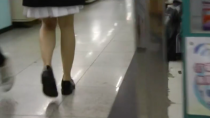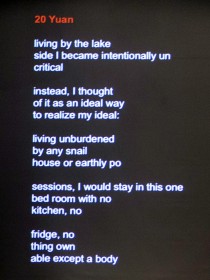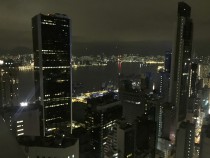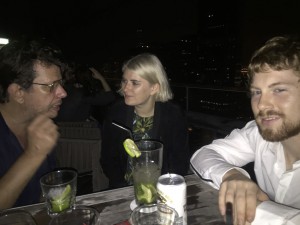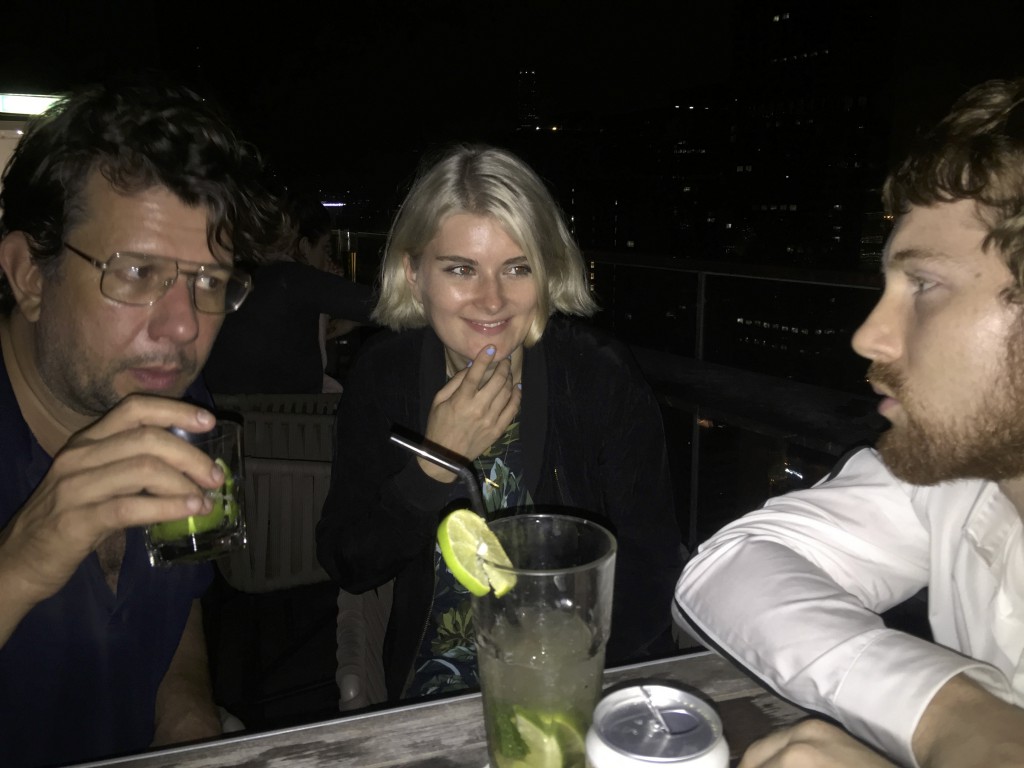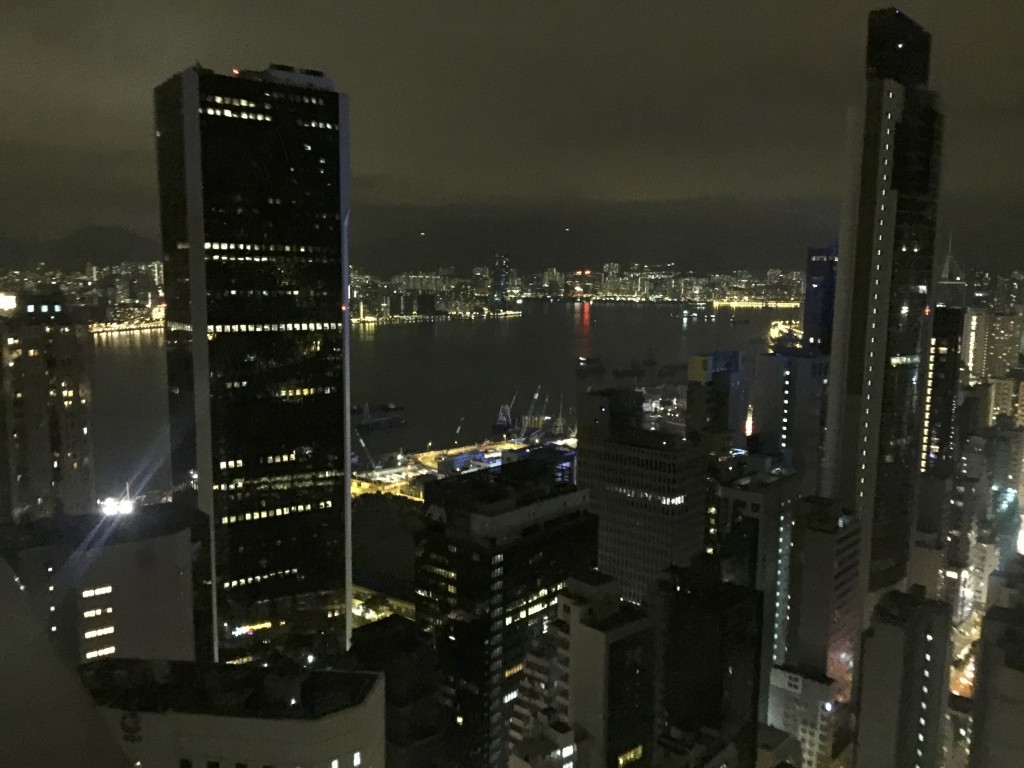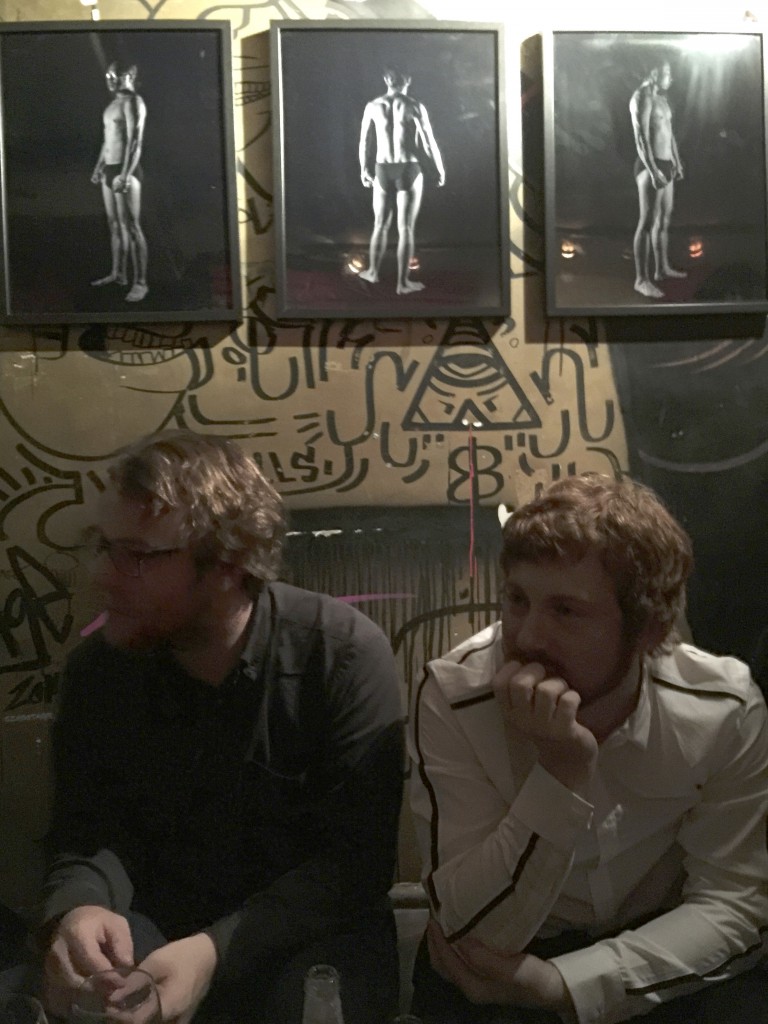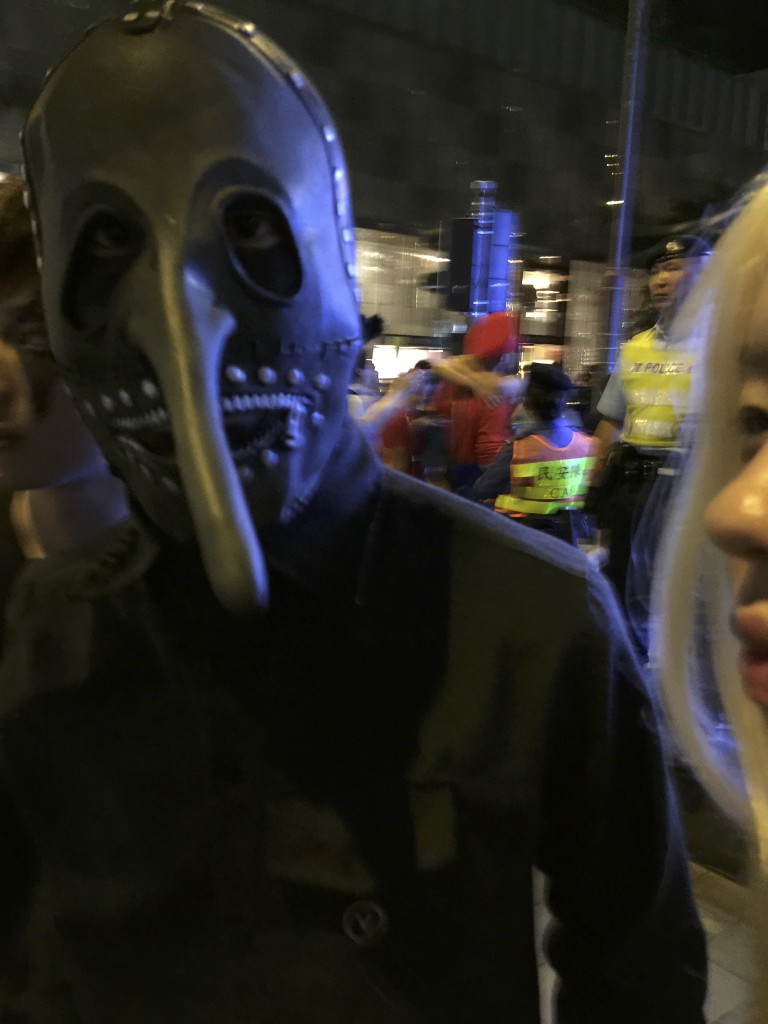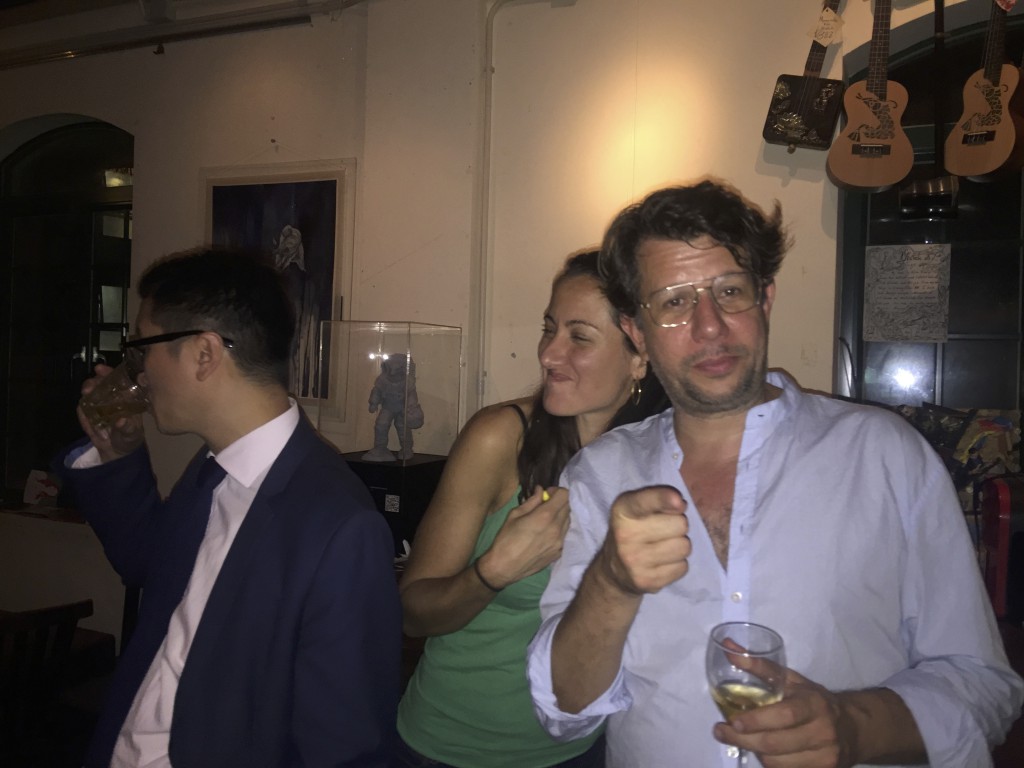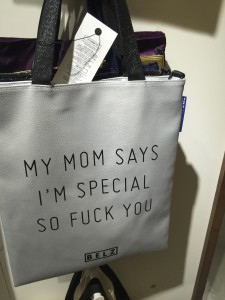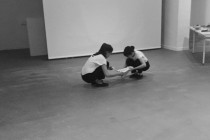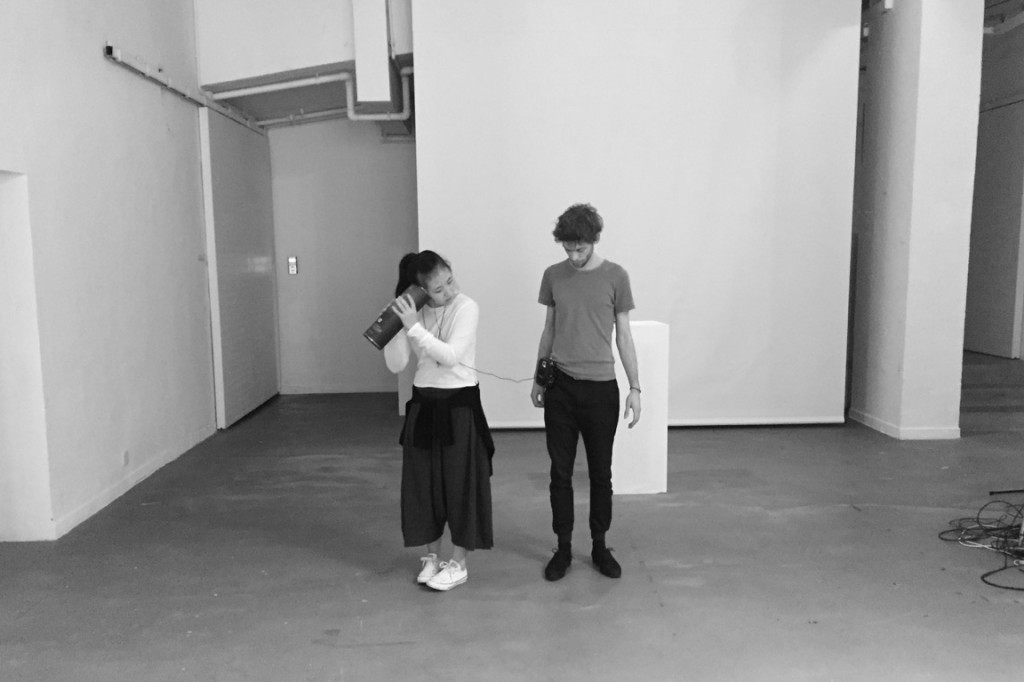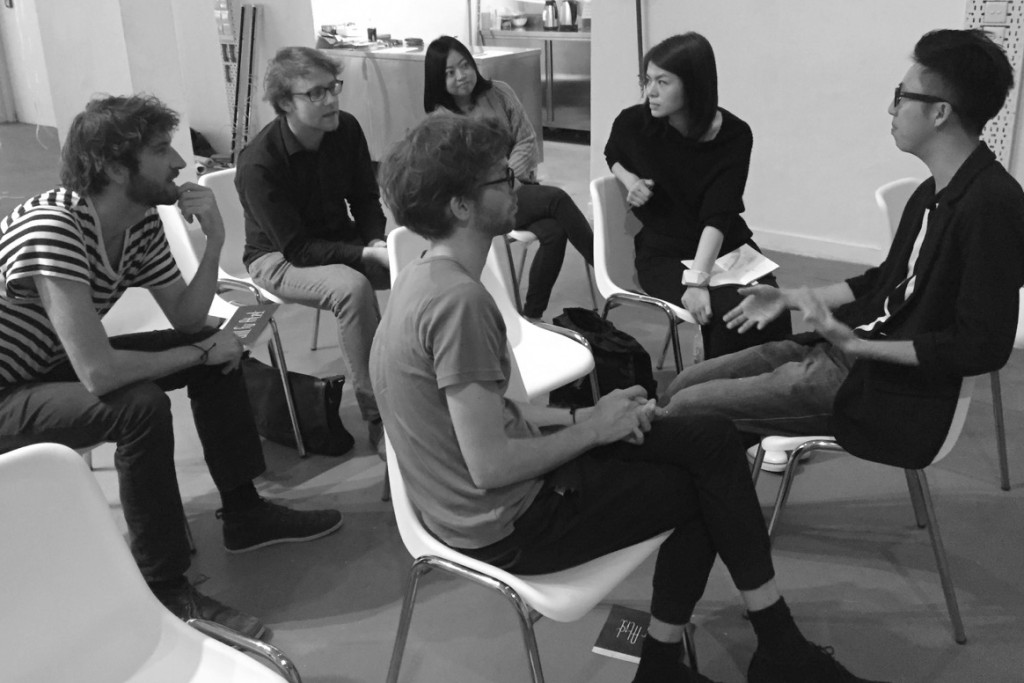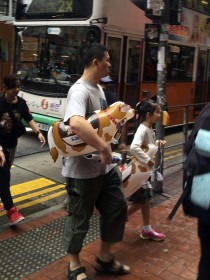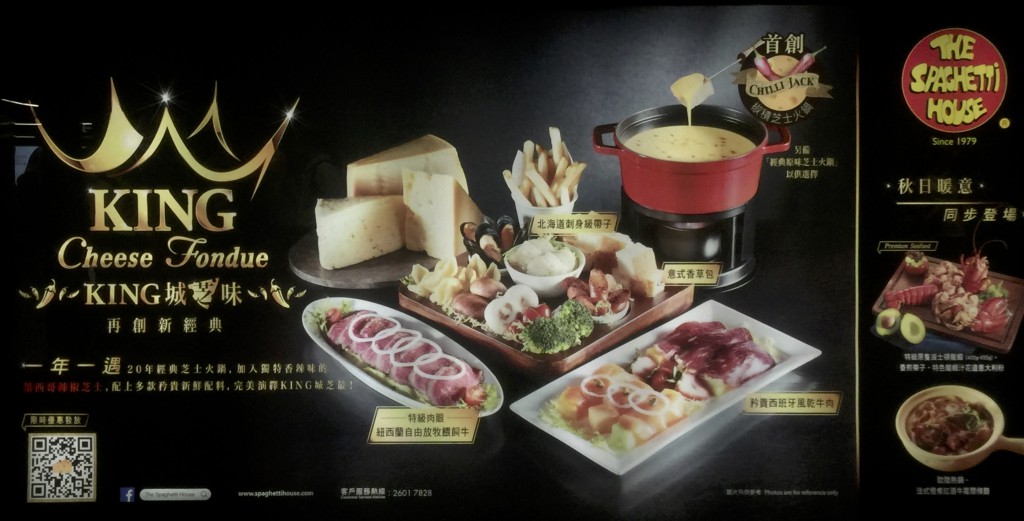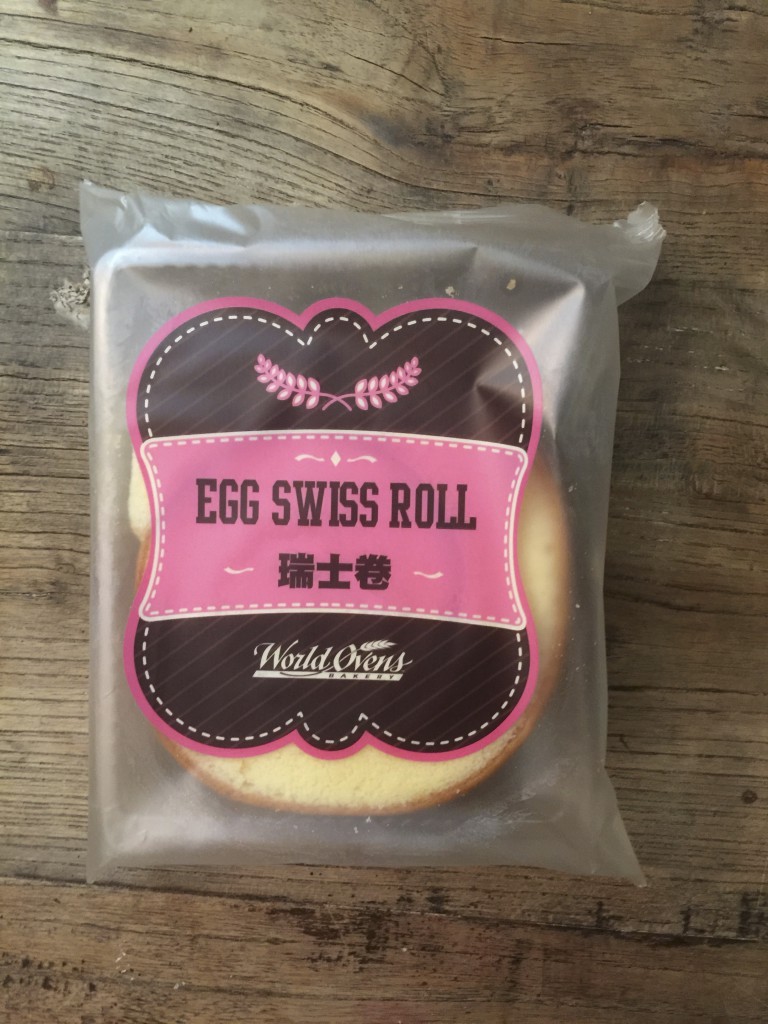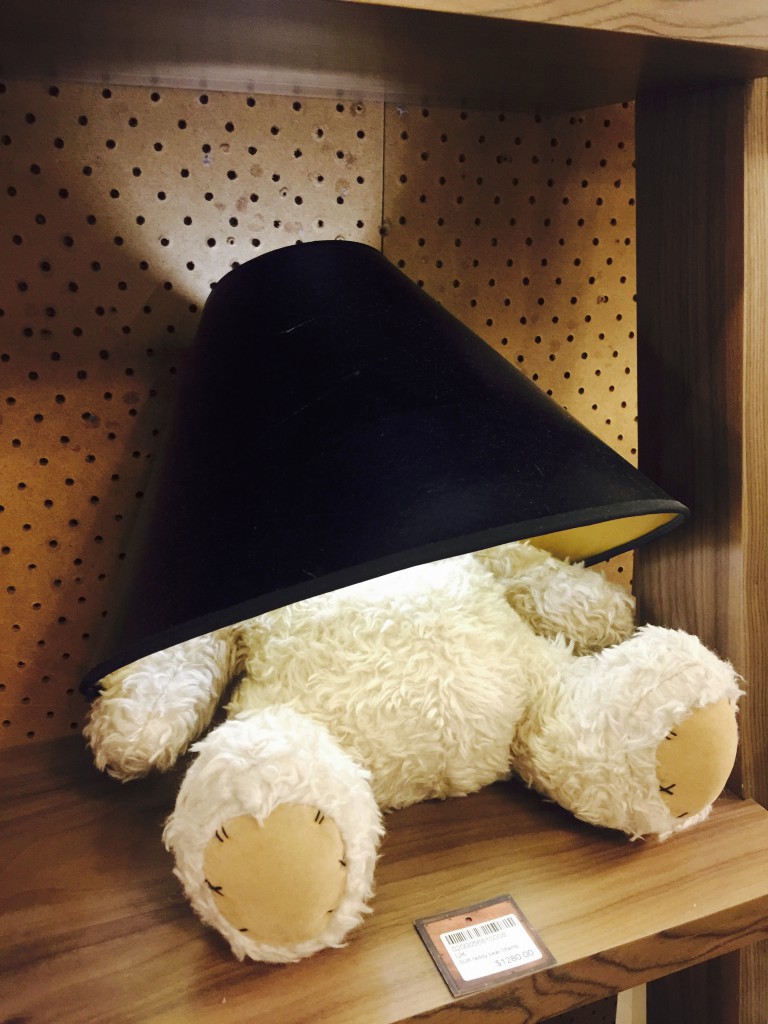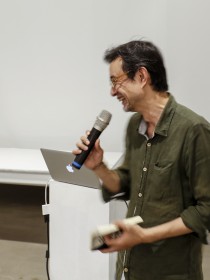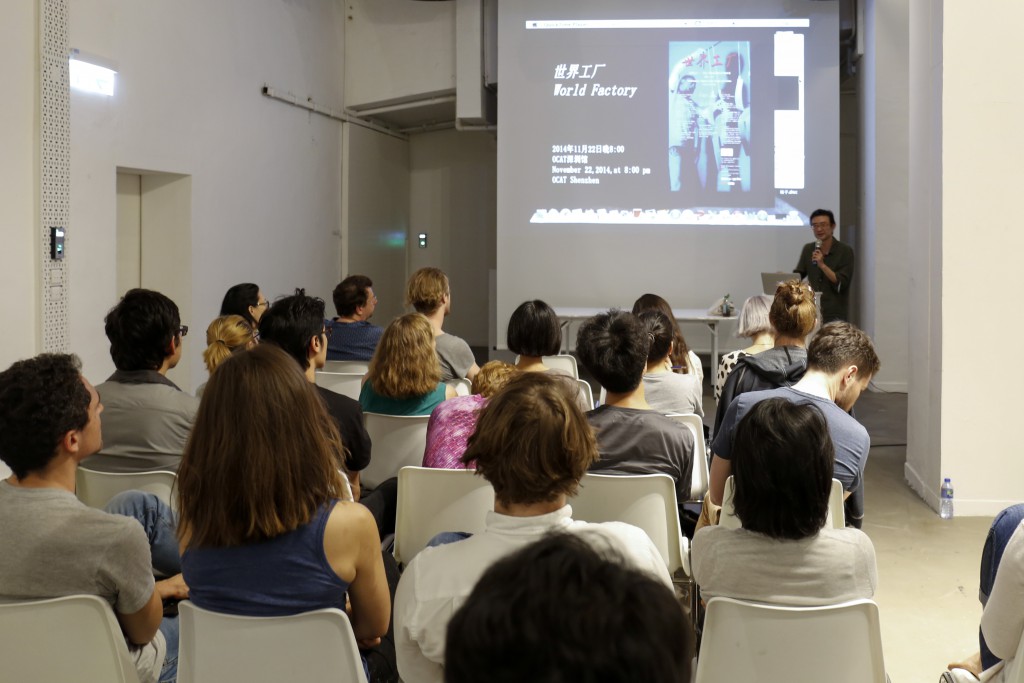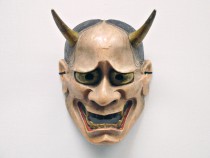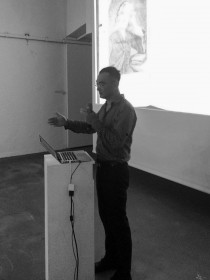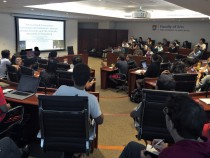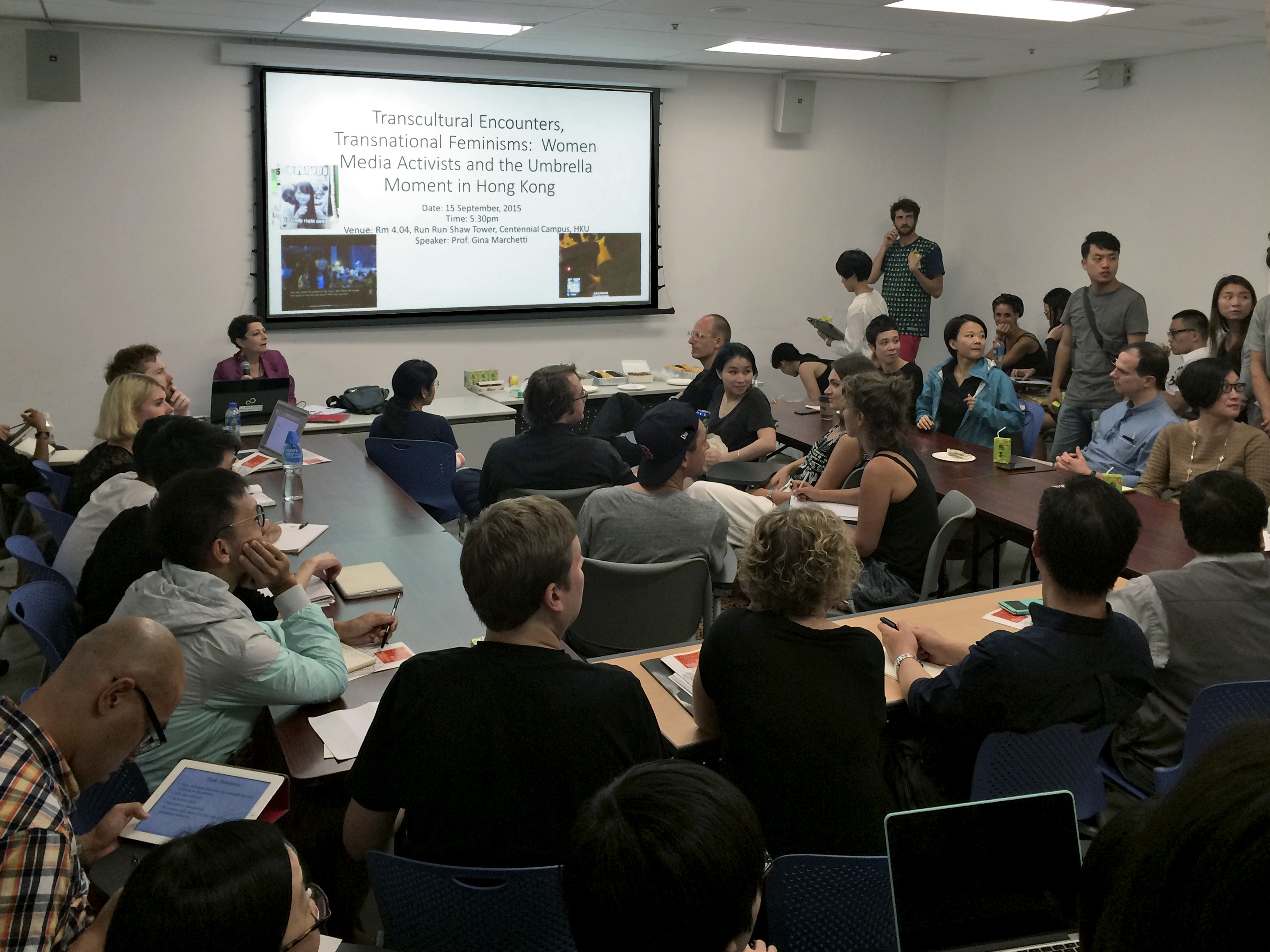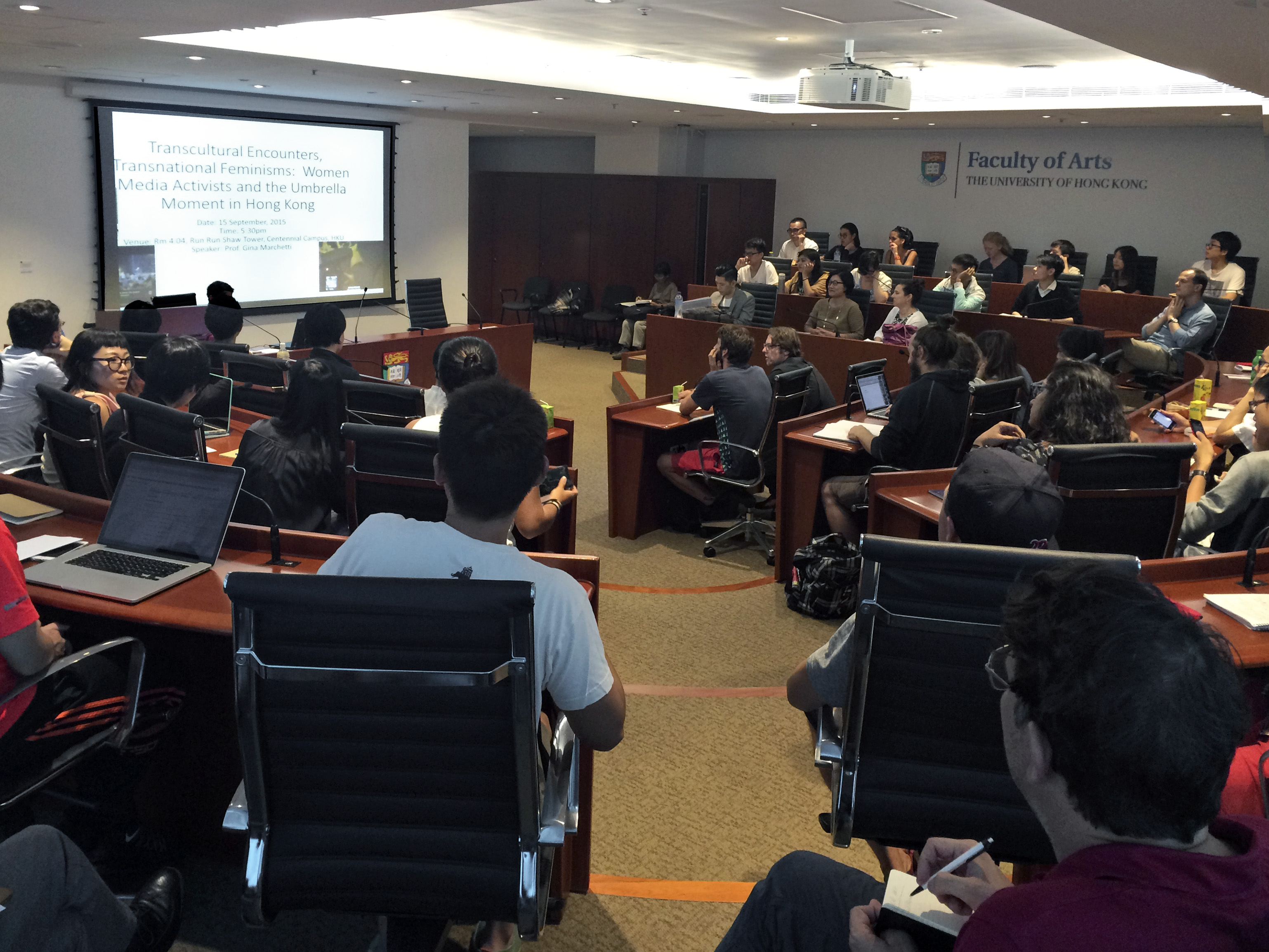Autor: TC
by Jörg Scheller
Hong Kong is probably the worst place for inter- or multicultural romanticism. Whoever believes that cultures, for instance Western and Far Eastern ones, are necessarily distinct entities will be disappointed here. HK rather suggests that singularity and similarity might as well be the two sides of the same coin. Exoticizing and othering tendencies have a hard time in HK, notwithstanding the persistence of difference. Especially HK island is a genuine transcultural place. The „inter“ in interculturality presupposes that there are still at least two distinct cultures and a void between them. The prefix „trans“ refers to „beyond“ and „through“, hence „transcultural“ suggests that we can go beyond given understandings of culture, that we can move through cultures.
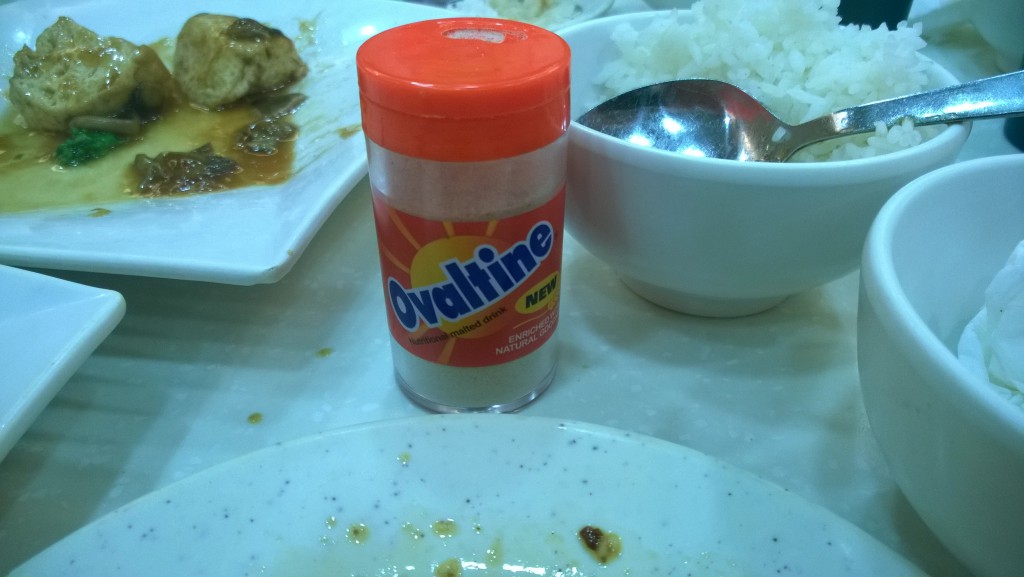 Colonial history, globalization, financial capitalism, and tourism have turned HK, using Homi Bhabha’s term, into a „third space“ beyond oppositional pairs such as „familiar and exotic“, „known and unknown“, „new and old“. What Kim Gordon writes bout HK in her autobiography Girld in a Band certainly still holds true: „Hong Kong was like nothing I had ever experienced before. […] I felt so overwhelmed by Hong Kong’s heat, chaos, clamor, and odors that I was convinced I would never—never—survive there a year.“ However, this experience is mitigated in manifold ways. At the airport, you get your Octopus Card which allows for fast and smooth payment anywhere in the city. You don’t get any stares in the streets as a white guy, you’re not being harassed. You float through the city easily via MTR. You always find someone who speaks English, globalization’s lingua franca. You discover some strange, but much more often strangely unstrange things: Ovaltine is one of them. (image 1) Or take this muscle car in Lockhart Road – a Ferrari just like any other Ferrari. With the slight difference that it seems to be a vegetarian or a Muslim one. (image 2). And how about this fountain on Statue Square? (image 3) It’s definitely a fountain, but the usual flow of water is inversed
Colonial history, globalization, financial capitalism, and tourism have turned HK, using Homi Bhabha’s term, into a „third space“ beyond oppositional pairs such as „familiar and exotic“, „known and unknown“, „new and old“. What Kim Gordon writes bout HK in her autobiography Girld in a Band certainly still holds true: „Hong Kong was like nothing I had ever experienced before. […] I felt so overwhelmed by Hong Kong’s heat, chaos, clamor, and odors that I was convinced I would never—never—survive there a year.“ However, this experience is mitigated in manifold ways. At the airport, you get your Octopus Card which allows for fast and smooth payment anywhere in the city. You don’t get any stares in the streets as a white guy, you’re not being harassed. You float through the city easily via MTR. You always find someone who speaks English, globalization’s lingua franca. You discover some strange, but much more often strangely unstrange things: Ovaltine is one of them. (image 1) Or take this muscle car in Lockhart Road – a Ferrari just like any other Ferrari. With the slight difference that it seems to be a vegetarian or a Muslim one. (image 2). And how about this fountain on Statue Square? (image 3) It’s definitely a fountain, but the usual flow of water is inversed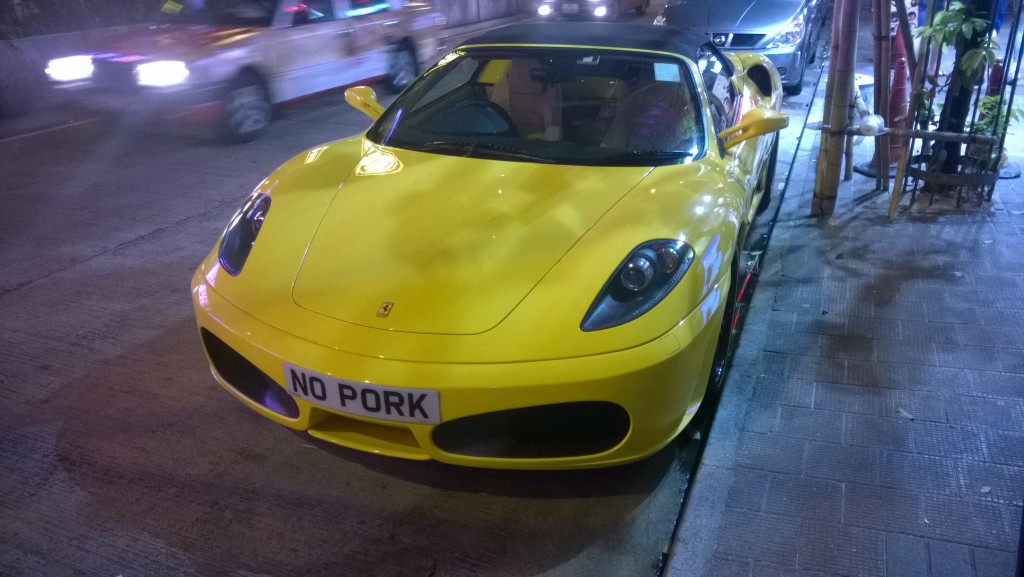
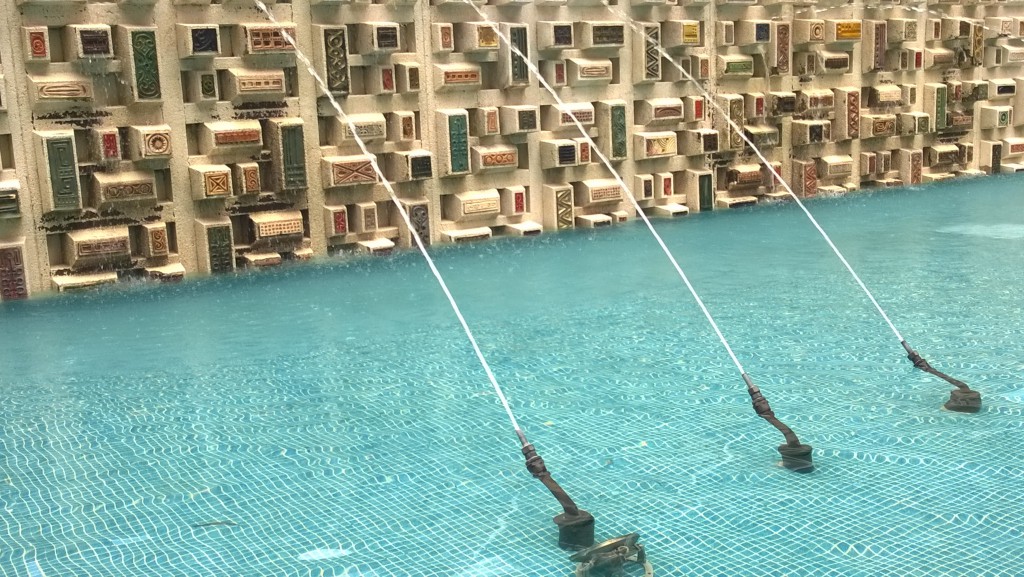
If transculturality means – and I subscribe to this – that „the differences no longer come about through a juxtaposition of clearly delineated cultures …, but result between transcultural networks, which have some things in common while differing in others, showing overlaps and distinctions at the same time“ (Wolfgang Welsch), then HK is indeed the genius loci for our program „Transcultural Collaboration“. HK is not about a (friendly) „clash of civilizations“ (Samuel P. Huntington). Instead, it has developed into a hybrid in the sense of Nikos Papastergiadis – „not confined to a cataloguing of difference. […] Hybridity is both the assemblage that occurs whenever two ore more elements meet, and the initiation of a process of change.“ Papastergiadi’s definition of hybridity as an „energy field of different forces“ is at the same time a suitable definition of HK.
That said, in my lectures in the Connecting Space during my two-week stay, I stressed that we need to transcend the narrative „Asia meets Europe“ and that we should leave behind the focus on ethnicity which has sneaked into the contemporary biennalized art system „through an unspoken policy of integrated casting“ (Kobena Mercer). Instead of focusing on cataloguing and trying to overcome alleged or factual cultural differences, we might also explore transcultural aspects in that which appears to be monocultural.
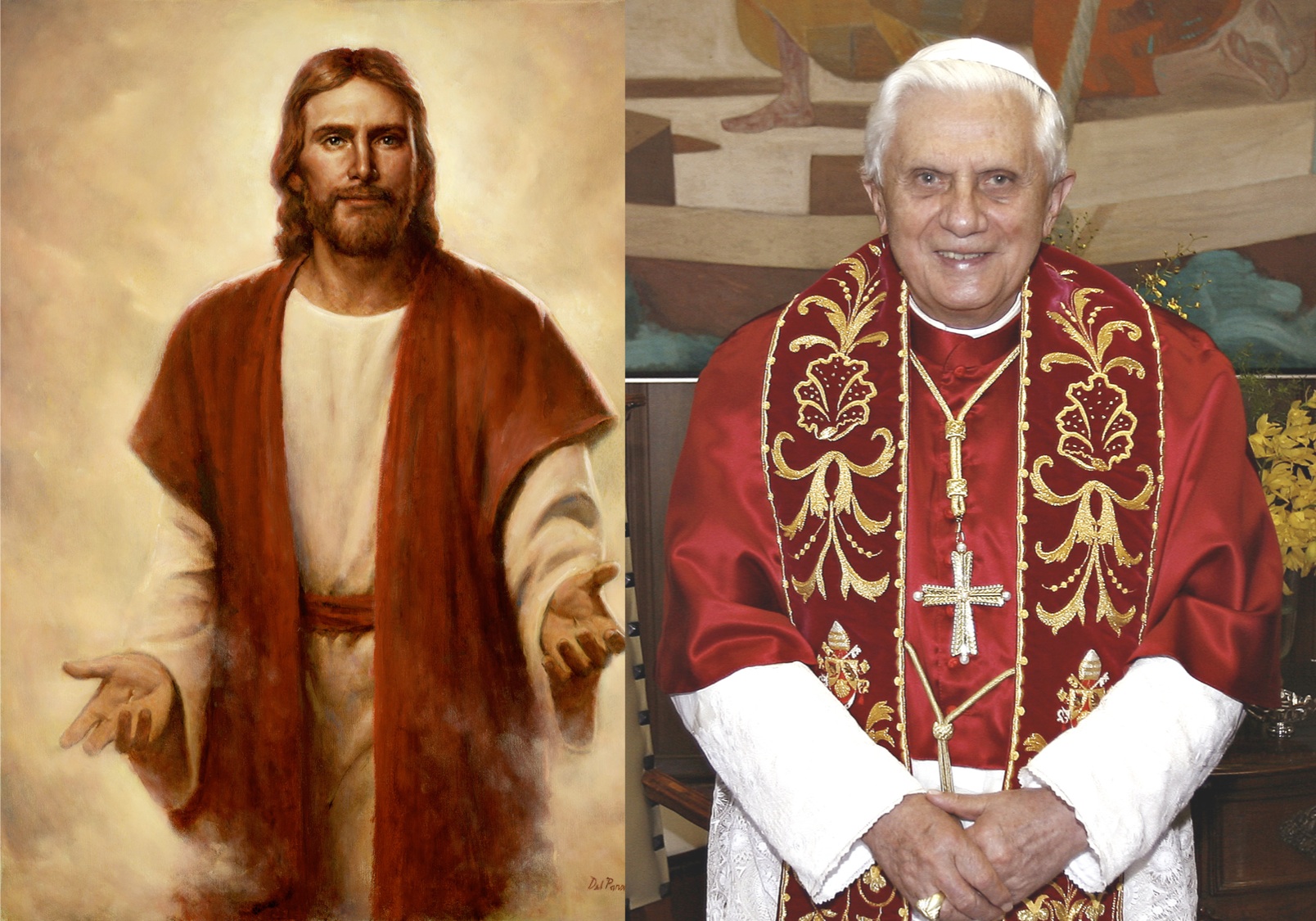
 For instance Christianity. The Catholic church is inherently transcultural since, in the course of its development, it has incorporated a broad range of heterogeneous elements. If you compare Jesus Christ, a jobless, long-haired Hippie savior, with former Pope Benedict, a spooky head of state wearing Prada shoes, you get what I mean. (image 4)
For instance Christianity. The Catholic church is inherently transcultural since, in the course of its development, it has incorporated a broad range of heterogeneous elements. If you compare Jesus Christ, a jobless, long-haired Hippie savior, with former Pope Benedict, a spooky head of state wearing Prada shoes, you get what I mean. (image 4)
Or think of Motörhead. (image 5) At first glance, this is the monocultural band per se. In fact, however, it is a fascinating hybrid of the interconnected but highly different (sub)cultures of blues, rock’n’roll, punk rock and heavy metal. Learning from HK means becoming aware that even while listening to „Ace of Spades“, one embarks on a journey across an archipelago of singularity and similarity, interconnectedness and difference. Thus, transculturality precedes and transcends the revival of ethnicity in globalization.
Jörg Scheller, art historian and head of BA Photography, Zurich University of the Arts, Switzerland was lecture guest at the Lecture Series on Transculturality.
Read more about his lecture Cosmopolitan Rhapsody – Transcultural Tendencies in the Music Video Genre here
Where is the ‘trans’ in Transnationalized Popular Culture? The case of Korean Wave
Lecturer by Dr Leung Yuk-ming Lisa
Associate Professor, Department of Cultural Studies, Lingnan University Hong Kong
Korean wave has taken East Asia and the world by storm: ‘You from the Stars’ (Korean drama), Gangnam Style, and of course boy and girl bands, have been topping the charts in East Asia, and have found their in European and American markets like never before. While many question the uniqueness of K-pop, others defended the authenticity of some musical elements as ‘Korean’. This brings back an age old question: how do popular cultures travel across cultures? Does the local flavor play a part in it, and how much? Where is the ‘Korean’ in the Korean wave, and how much does it matter? In this lecture, I shall try to reinvestigate notions such as ‘cultural odour’, ‘cultural discount’ to see how Korean wave could be so successful in this network era. Using the case of Korean wave, we will question the different aspects/ layers that globalized popular culture interplays with the local, by ask the following: i) the ‘flow’ of popular culture as mediation – how does popular culture travel? ii) impact of Korean wave as a brand on geo-politics, and social movements. Eventually I shall discuss the use of popular culture, locally and globally. At the end of this session, we can gain a new insight into the critical mapping of global popular culture, everyday life, and politics.
Lisa Y.M. LEUNG is Associate Professor at the Department of Cultural Studies in Lingnan University. Her main research interests are television and journalism studies, gender and communication, media globalization, and discourses of multiculturalism. One of her recent research focuses on the flow of media and cultural products across Asia, and (social) media and political participation. Her publications cover a range of topics including online (news) media and social movement, transnational reception of popular cultural products across Asia, and the cultural negotiation of ethnic minorities in Hong Kong. She recently published Understanding South Asians in Hong Kong, the Chinese translation of which will be published in 2016.
Thursday, November 5 – 7pm
Connecting Space Hong Kong
G/F, 18-20 Fort Street, North Point, Hong Kong
Creative Migration: ‘to emigrate inwardly’
Lecturer by Ouyang-Yu
Author, Melbourne/Shanghai
‚Migration for Good, for an Eternal Étranger‘, a topic Ouyang Yu will be talking about in which he’ll describe his experience as an Australian citizen living and teaching in China where he was born, how his writings are censored in both China and Australia, for the similar reasons of unmarketability, and how he lives as a poet and novelist writing in two languages in two countries, with English unpublishable in China and Chinese unpublishable in Australia, or only to a very limited degree.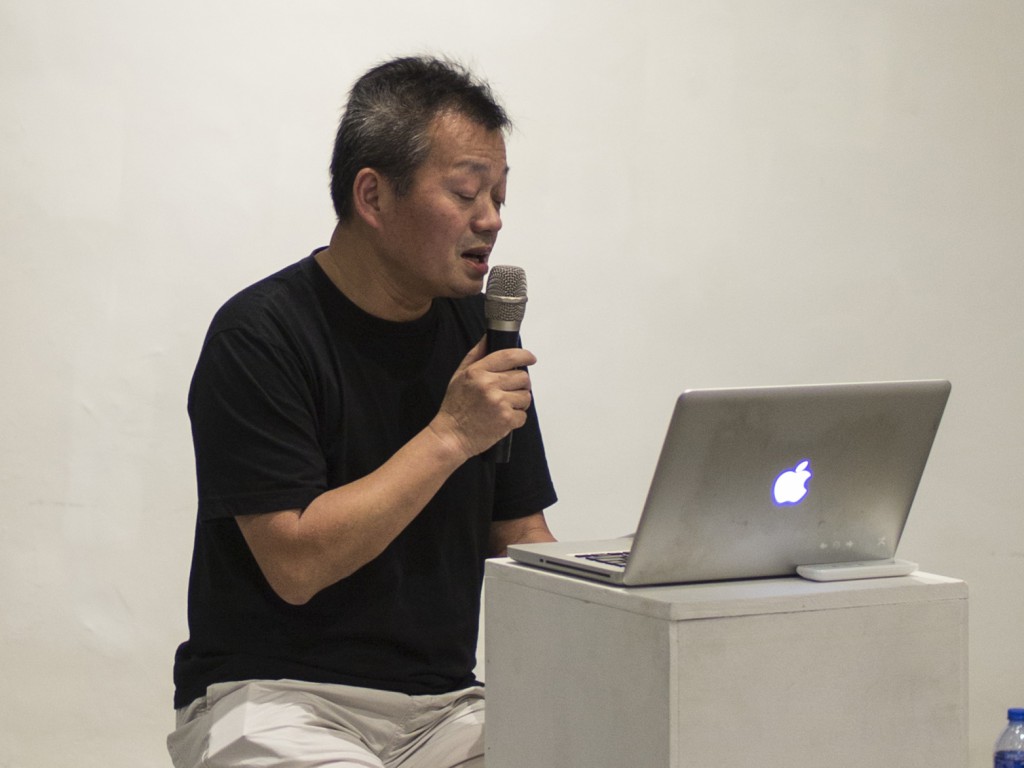
Ouyang Yu, born in Huangzhou, Hubei, in the People’s Republic of China, completed an MA in English and Australian Literature in Shanghai and worked as an interpreter, translator and lecturer in China. He came to Australia in 1991 to complete a PhD at La Trobe University, Melbourne, on the representation of the Chinese in Australian fiction (awarded 1995). He writes in both English and Chinese. Best known for his poetry, he has also written fiction and criticism in both languages, and has translated over a dozen major Australian literary texts into Chinese.
Ouyang’s best-known works in English are his poetry collections Moon Over Melbourne and Other Poems (1995, 2nd revised edn 2005), Songs of the Last Chinese Poet (1997, short-listed for the 1999 New South Wales Premier’s Literary Awards) and Two Hearts, Two Tongues and Rain-Coloured Eyes (2002). His first novel, The Eastern Slope Chronicle, was published in 2002. He is the founding editor of Otherland, the first (and only) bilingual journal of Chinese-Australian writing. He has won a number of major grants for fiction, non-fiction, poetry and translation.
Thursday, November 12 – 7pm
Connecting Space Hong Kong
roof tops
ground tops
Cultural Identity in the World Today
Lecture by Gordon Mathews
Professor of anthropology at the Chinese University of Hong Kong
Who are we? Today two contradictory discourses shape our cultural identities, those of the state and of the market. The state tells us that we should love our country, while the market tells us that we should love money and choice. Both of these forces are based on lies, but because we are immersed in these discourses, we cannot easily see this. Hong Kong is unusual in the world, in that it has long been based not on the discourse of the state, but only on that of the market.
This accounts for some of the political turmoil in Hong Kong in recent years. Are Hong Kong people, in their inability or refusal to follow the discourse of the state, blind as the rest of the world is not, or are they seers in a world that is blind?
Gordon Mathews is a professor of anthropology at the Chinese University of Hong Kong. He has written and edited various books, including What Makes Life Worth Living: How Japanese and Americans Make Sense of Their Worlds (1996), Global Culture/Individual Identity: Searching for Home in the Cultural Supermarket (2001), Hong Kong, China: Learning to Belong to a Nation (with Eric Ma and Tai-lok Lui, 2008), and Ghetto at the Center of the World: Chungking Mansions, Hong Kong (2011).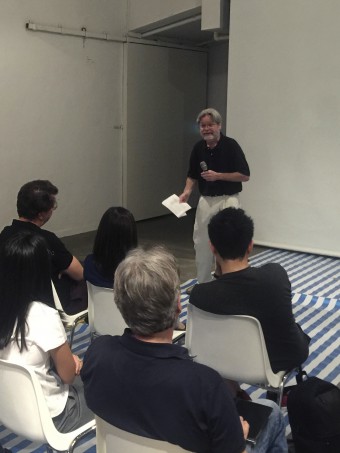
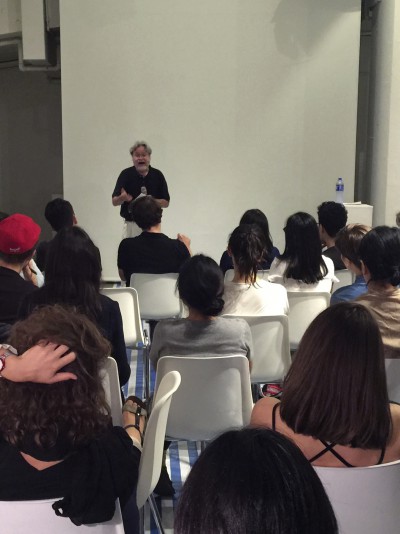
Thursday, November 5 – 7pm
Connecting Space Hong Kong
Connecting Sound Workshop
Workshop by Brandon Farnsworth, Music Curator
Through a mix of presentations and performances, the Connecting Sound Workshop offered a space for artists working in various performing arts fields to come together in a relaxed atmosphere and share practices, ideas, and experiences. It offered a space that promoted unexpected encounters while placing no emphasis on finished products, preferring rather to spill into the eternal flow of practice.
Several moments during the workshop stood out because of their surprising but somehow also inevitable nature. These intuitive moments were in retrospect inexorable, though could never have been premeditated. It was precisely this nature that lent them their significance, and which hopefully could inflect positive change in the practices of the participants.
swiss styles in HK
Grass Stage’s Route to Social Theatre
Lecture by Zhao Chuan
Writer, art critic, curator and theatre director
„The stage is a small world, and the world is a big stage“- how does reality unveil drama every day and make it impossible for us to stay out of social theatre? Grass Stage is a theatre collective founded in spring 2005. Under the direction of Zhao Chuan—writer, curator and theater director, it has put on a number of programs and performances which steadily grew in influence and acclaim. The members of Grass Stage encourage ordinary persons to enter the theater to create a social theater with a rich social conscience. Grass Stage’s pieces, within a framework of the most basic “poor theater”, use a diverse set of techniques including physical theater, texts, documentary footage, oral story-telling, clown performance and performance art, engendering powerful spaces for intellectual exchange. Over the years it has deployed various venues to stage not-for-profit performances and discussions in China. Their theatre has thus become a gathering spots for all kinds of people, continually creating fluid public spaces. Their post-performance talks have often become the scene of theatre unexpectedly.
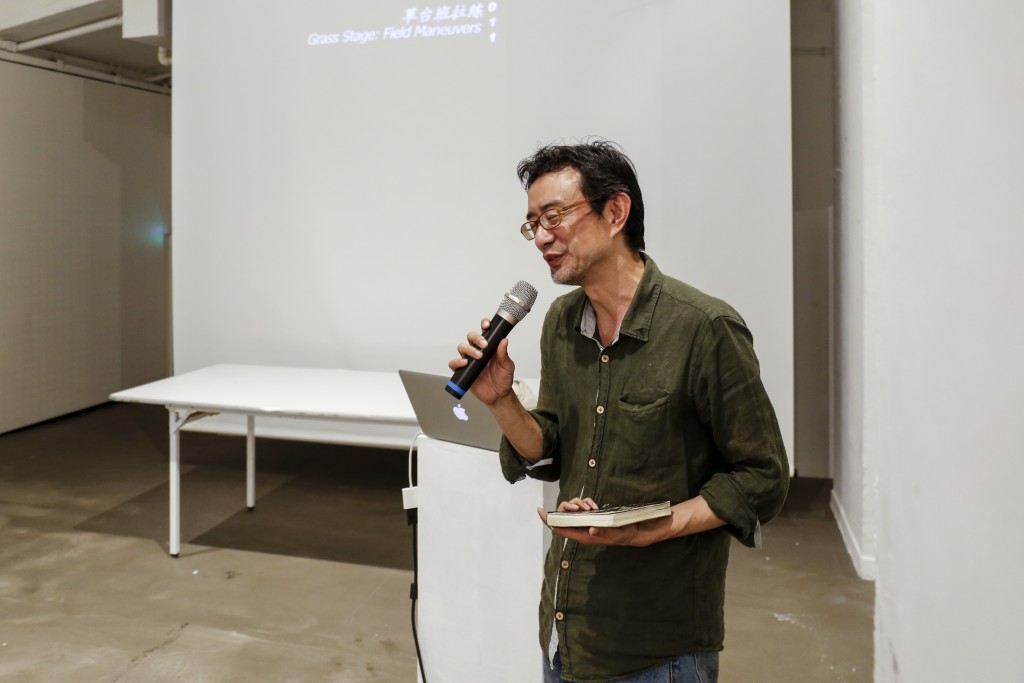
Zhao Chuan is a writer, art critic, curator and theatre director who creates alternative, political theatre in Shanghai. He is the founding member and mastermind of the very important Chinese theatre collective Grass Stage since 2005. His work devoted to the promotion of new social theatre movement and the creation of non-profit public space. The collective has focused on deepening the connection between theatre and society, and has made use of a wide range of venues and situations for performances and discussions. Grass Stage events are not only spaces for bringing together diverse elements of society, but also provide, in a country relatively lacking in opportunities for public participation, a fluid and varied range of public social spaces. His theatre works have been performed in many Chinese cities, as well as in outside of China. Zhao Chuan has been awarded several literature awards, including the Unita Prize for New Novelists (Taiwan 2001). His curatorial projects including 2014 Performance Project at OCAT Shenzhen; “Action Asia” at Shanghai Rockbund Art Museum from 2013 to 2014. He was artistic director for Mecooon Fringe Festival in Shanghai in 2009 and 2010.
Thursday, October 29 – 7pm
Connecting Space Hong Kong
Anonymity and Creativity
Lecture by Christopher Kriese
What would you do if you knew nobody was watching? What
would you do if you were invisible in the real world? What
would you do if you were invisible in the internet? How could
anonymity transform arts and activism?
This is an experimental short lecutre. please send feedback to: kriese@posteo.de
Tracing Hong Kong Urban Space in the 1950s through the Cinema
Lecturer by Kenneth Ip Shu Kei
Chair School of Film and Television HKAPA
There were two kinds of cinema in Hong Kong in the 1950s, the Cantonese cinema which catered more to the grass-root population, and the Mandarin cinema which found its audience mostly among the middle class. Both cinemas serve as a mirror to the many social problems facing the colony after WWII. The lecture attempts to look at the division of urban space, particularly the housing problem, in that decade via a few outstanding and representative cinematic works.
Shu Kei began writing scripts for television when he was still studying in the University of Hong Kong. Among the directors he worked with during this period were Ann HUI, Partrick TAM, YIM Ho , Allen FONG and TSUI Hark. He entered Golden Harvest Film Company after graduation as scriptwriter and assistant director. In 1980, he wrote the script for John WOO’s TO HELL WITH THE DEVIL. In 1981, he made his directorial debut, SEALED WITH A KISS. Since then, he has directed six drama features, including HU-DU-MEN (1996) and A QUEER STORY (1997) and a documentary, SUNLESS DAYS which won a Jury Award at the Rimini Film Festival and a Special Award at the Berlin Film Festival. He’s also a distributor specialising in art-house films. Up to date, the library of his distribution company has over 200 titles. Besides these, he is responsible for the world marketing and distribution of such important Chinese films as TIAN Zhuangzhuang’s THE BLUE KITE, CHEN Kaige’s FAREWELL TO MY CONCUBINE, WONG Kar-wai’s ASHES OF TIME and CHUNGKING EXPRESS. He is the producer of ZHANG Yuan’s BEIJING BASTARDS and Fruit CHAN’s MADE IN HONG KONG, among others.
He has edited and published several anthologies of yearly film reviews for the Hong Kong Film Critics Society, two books on the Hong Kong Cinema in the Fifties and Sixties for the Hong Kong International Film Festival and is the author of two novels.
Thursday, October 15 – 7pm
Connecting Space Hong Kong
Self questions (Ida):
1. How do we place ourselves in HK?
I am a stranger but also familiar with the city, because part of my family is living there. I find myself inbetween being a foreigner and a visitor, a guest.
Dreams and emotions are mostly always the same for people all over the world. But the way they are expressed is totally different and these distinctions, no matter how tiny, are something that interest me a lot.
2. How do I connect with other people?
I like to observe people and look at them for a while. How do they behave? What clothes do they wear? How do they talk with other people?
The way people live tells me a lot about their character.
What kind of furniture do they have? Do they have paintings on their walls? Are they clean, messy or super organised?
From the moment I meet a person I try to connect with them and collect as much information about them as possible.
A lot of this process happens automatically, it is like an implemented system, like a computer program: I scan other people. I do not always like that, but nobody can free himself from this process. Everybody takes decisions through and due to his cultural, biographical and ethnical knowledge.
3. What kind of people do we want to connect to?
As many diverse people as possible who make their living in Hong Kong: on the range ofdishwasher to millionaire. The contrast in HK is really big.
4. What does it mean to me to be in HK?
On the one hand it is familiar, because this is my second trip to Hong Kong and a part of my family is from HK. I experience HK from their perspective and it feels familiar in that way. But I also feel the differences of being a European in HK.
If I leave the door and exit the `European compound` I become a stranger, because I do not understand the language and a lot of things that I see, I experience them differently than things that I know and I am used to. But I enjoy this situation a lot, because my senses are much more open. I feel like a child, seeing, smelling things for the first time.Through this situation of being a stranger I am confronted with my own perception, my values and my limitations. I see myself mirrored in other people that I pass on the street.
Hong Kong is a melting pot of different cultures and contrasts: mainland chinese people/Hong Kong residents, nature versus mega city, rich/poor, educated/no school knowledge, sea/land, up up up-a city of diversity of every kind.
5. What is feels strange and different for you in Hong Kong?
Sometimes I feel strange, because I am stranger in HK. The people here look and behavedifferent and that already creates a distance.
In chinese culture and in Hong Kong a lot of things work in another way. For example for me as a vegetarian it is really strange that nearly every animal can be a meal like turtles, snakes, dogs and ducks etc.
Some people look at me and my daughter as if we are from an other planet. Others do not care, I become one of them. I find that quite interesting, because I can become an alien inbetween all the people. It is a strange feeling to stand out with ones appearance . And on the other hand sometimes being just one of million other people.
6. Do you miss your homeland?
At the moment I do not, because I am also not living in my home country Germany. Living in Switzerland I am also a foreigner. I only miss some family and friends, in my case people define home for me.
7. What does `homeland` mean to you?
My homeland is where I grew up. Germany feels familiar to me, I know the people, culture and rules. But there are other very interesting places in the world which can be familiar as well. Home is what we make out of it.
8. How do you work as an artist?
Be open, see, observe, take time, leave space for experiments. Trust your senses, be brave, risk something and stay who you are. Connect yourself with people, never try to solve every problem only by yourself. Ask for advice if necessary and let yourself go. Inspiration needs time, to dare to go deeper. Question yourself. Be patient!
9. What are your dreams ?
I live for the moment and I try to be modest with my wishes and dreams. It is my personal secret!
Non-essentialist hybridization – Now you see me, now you don’t.
Lecture by Frank Vigneron
Director of MA program in Fine Art, Chinese University of Hong Kong
After a recapitulation of the notions of ‘‘East’’ and ‘‘West’’ in the work of Edward Said and the kind of problems they have generated in the evaluation of art in Hong Kong (illustrated with some examples of two kinds of artwork using concepts and visuals from Euro-America and China), the process of hybridization is then presented as the way in which a culture will transform into something new. The question is therefore to establish what can be called a hybrid. To put it simply, one calls ‘‘hybrid’’ in the cultural realm something that does not yet look ‘‘native.’’ For instance, in present-day China what was still considered to be a hybrid in the arts not so long ago is often identified as more Chinese than ‘‘Western’’ today. A cultural element only stays a hybrid as long as it is seen as such, but its visibility is subject to change. This begs another question: what are the conditions of the visibility of hybridity and through what process does it go before being identified as something ‘‘native’’? Hybridity is in reality a very unstable characteristic, and its presence depends very much on who is looking and how; it is a question of cultural representation and, as a result, cannot be inherent in the object itself. This non-essentialist view of hybridization in the visual arts, presenting itself in the shape of the Deleuzian rhizome, may shed a different light on questions related to differences and similarities between cultures.
Thursday, October 08 – 7pm
Connecting Space Hong Kong
Imaginary Identity: The Fake Formosan George Psalmanaazaar
Lecture by Lin Hongjohn
Curator and Chairperson of Fine Arts Dep, Taipei National University of the Arts, Taiwan
In 1703 the high society of London there appeared George Psalmanaazaar who claimed himself a Formosan to be abducted by a Christian missionary. In his book, An Historical and Geographical Description of Formosa(1704) , described Formosa to be a country of abundant resources, governed by a Japanese ruler. In this fictive book, Formosan people was almost half-naked, only wearing silver plates over their private parts. Horses, camels, and elephants were domesticated for transportation. One of the high peaks of the book was that every year Formosans sacrificed the eldest sons to their gods, and even in the second edition (1705), Formosan were exaggerated as cannibals, who ate those were sacrificed and executed. Being a celebrity of his exotic oriental identity and feted by all the literary and philosophical lions of London, Psalmanaazaar were even invited to teach Formosan in Oxford University. Psalmanaazaar was the beau monde in the celebrities of London.
Psalmanaazaar’s real identity is still unknown today, as much as in his will he still signed with the fictional Taiwanese name. In order to portray as a Formosan, he ate raw meat with various heavy spices. He even lighted candle when he slept to pass for the other that he was actually reading, for Formosans, according to his book, learned knowledge through their sleeps. For 18th century occidental world Ilha Formosa, Taiwan, represents one of the most distant country they can imagine not just geographically but symbolically as well.
Since 2008, I have been working on this fake Taiwanese under the title The Museum of George Psalmanazzare, MOGP exhibiting in Rotterdam, Manchester, Shanghai and Taipei. In the 2012 Taipei Biennial as participated artist, the project was presented in a manner much similar to that of museum. I link the secrete path between identity and the politics of fantasy, and the other, the real of the local, much as a missing part that is intrinsic to the real Taiwanese. In combining the seemingly impossible fragments of sights and sounds, to link the web of identity politics that linger between the ancient and the contemporary, the truth and falsity to capture the fleeting moment of the perverse, the primitive, the empowered to glance the phantom of history.
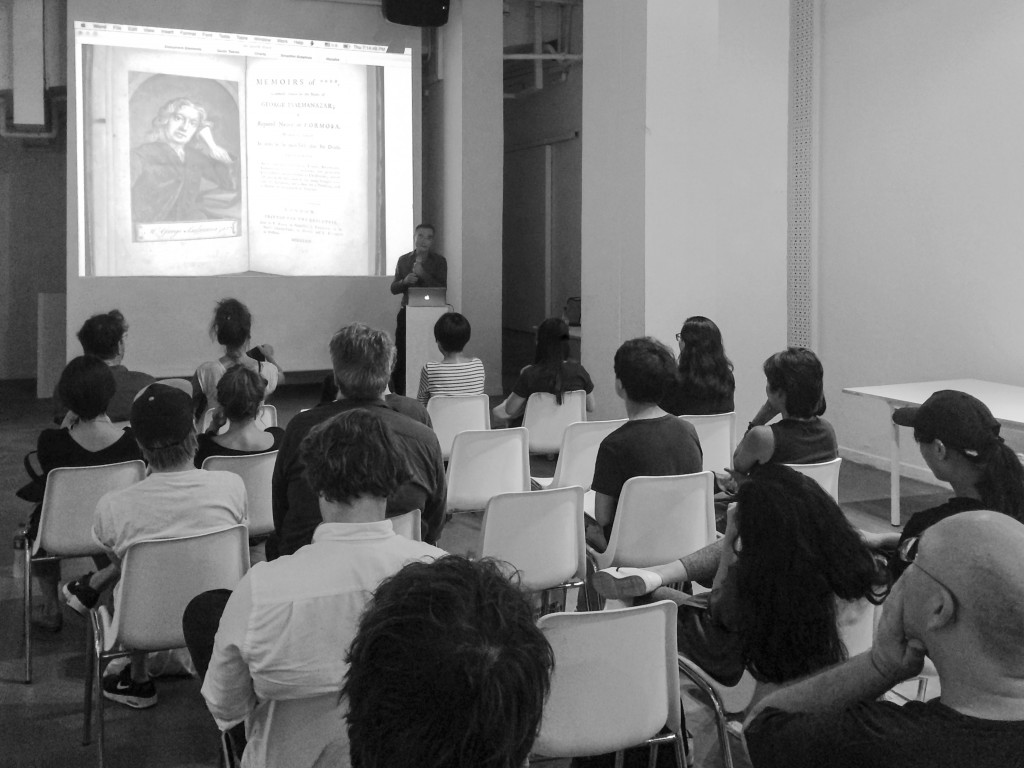
Thursday, October 01 – 7pm
Connecting Space Hong Kong
Transcultural Encounters, Transnational Feminisms: Women Media Activists and the Umbrella Movement in Hong Kong
Lecturer by Gina Marchetti
Professor at the Department of Comparative Literature, University of Hong Kong, Hong Kong
Hong Kong’s 2014 Umbrella Movement, calling for a more open procedure for vetting candidates for its first exercise in universal suffrage in the election of its Chief Executive in 2017, does not have an explicit “feminist” agenda. However, initial research shows that over fifty percent of participants in the movement are female. Although underrepresented in visible leadership roles and in media reports on the demonstrations, women have played an essential part in all aspects of the movement. Moreover, they suffered from sexual harassment by counter-demonstrators intent on intimidating them and infringing on their right to public assembly. As Mirana Sze-to’s preliminary analysis shows, women activists shaped the physical space and quotidian operation of occupying Central, Causeway Bay, and Mongkok in very visible ways—from redecorating public bathrooms and crafting agit-prop artworks to running supplies and operating “democracy” study halls. They drew on various transnational cultural icons and ideas to support their political aims with nods to female artists such as Yoko Ono as well as noticeable ties to global LGBTQ rainbow movements.
During the demonstrations, women media artists took up cameras to record events and document their active participation in the political process. This presentation examines how these filmmakers see themselves as women with cameras observing as well as confronting Hong Kong’s political deadlock in relation to broader questions of the role of women in democratic movements globally. The talk highlights the diversity of the female media artists, coming from North America, Europe, Vietnam, mainland China, and elsewhere, who helped to put the Umbrella Movement on screen for world audiences. Their motion pictures illustrate the transcultural, cosmopolitanism at the root of transnational feminist theory today, and how this plays a critical role in depiction of Hong Kong activism for international audiences.
Gina Marchetti teaches in the Department of Comparative Literature, University of Hong Kong. Her books include Romance and the „Yellow Peril“: Race, Sex and Discursive Strategies in Hollywood Fiction (1993), Andrew Lau and Alan Mak’s INFERNAL AFFAIRS The Trilogy (2007), From Tian’anmen to Times Square: Transnational China and the Chinese Diaspora on Global Screens (2006), and The Chinese Diaspora on American Screens: Race, Sex, and Cinema (2012). Information on her project on Hong Kong women filmmakers can be found at https://hkwomenfilmmakers.wordpress.com/.
Tuesday, September 15 – 5:30pm
University of Hong Kong, Rm 404, Run Run Shaw Tower
